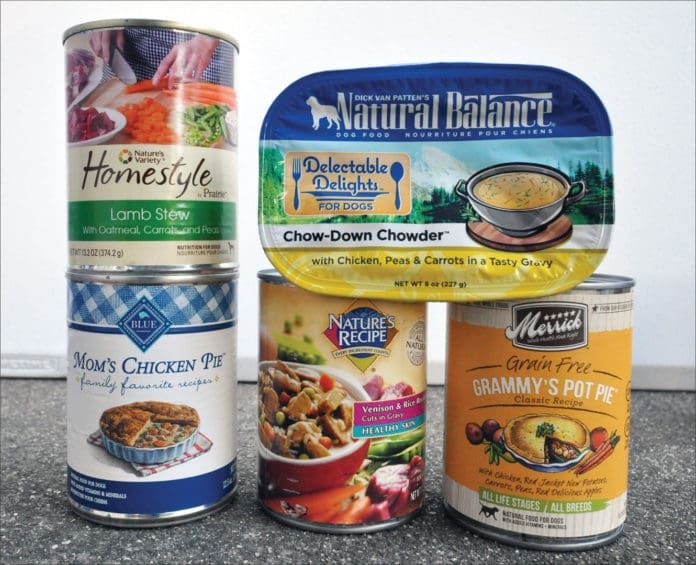Industry analysts frequently observe that “humanization” has been a hot trend in pet food for the past few years. The term is used to describe products containing ingredients that are popular in the human food industry, as well as those that are manufactured and/or packaged to resemble human food.

288
Both “humanizing” strategies – using trendy ingredients and making pet foods look like human foods – are being used with great success to market pet food. And nowhere is this strategy being used to greater effect than in the canned food category. Because – soup! stew! yum!
As always, you have to read the ingredients list to determine whether a product has received a flattering makeover, with label art and language that make prosaic ingredients appear better – or whether the food does actually contain whole, healthy, “real” food ingredients.
Don’t fall for pretty pictures of ingredients on the labels of pet food; be advised that the “chicken” that is used in pet food doesn’t look anything like those gorgeous whole roasted chickens you see on some labels. Beautiful photographs or illustrations of dewy spinach leaves and robust whole carrots, glistening slabs of beef steak, or fat cubes of chicken breast, don’t indicate that those ingredients are present in that form, amount, or proportion.
Similarly, don’t allow adjectives to influence your perception of the ingredients. “Poached salmon” and “baby carrots” sound terrific, but “salmon” and “carrots” are the same thing, and laudable in their own right. Also, watch out for the word “flavor” – it doesn’t necessarily mean the food contains whatever food the word “flavor” is attached to; it means only that the food contains a flavoring agent!
I expect marketing efforts to be disingenuous, so I don’t take offense at these obviously manipulative tactics. However, there is one application of the term “humanization” that I find incredibly patronizing: when analysts credit humanization for the sales success of foods that contain genuinely top-quality, healthy ingredients, as if anyone who bought anything other than the least-expensive foods on the market was being silly and anthropomorphic.
Many of us buy pet foods with human-quality ingredients because we truly believe that fresh, clean, whole or lightly processed ingredients from reputable domestic sources are more likely to benefit our dogs and less likely to harm them than low-quality by-products from the other side of the globe – not because we want our dogs’ food to appear to be as good (or better) than ours.






